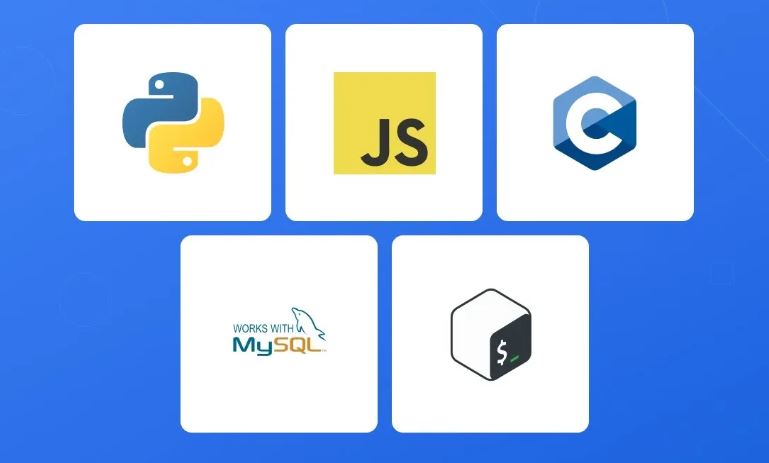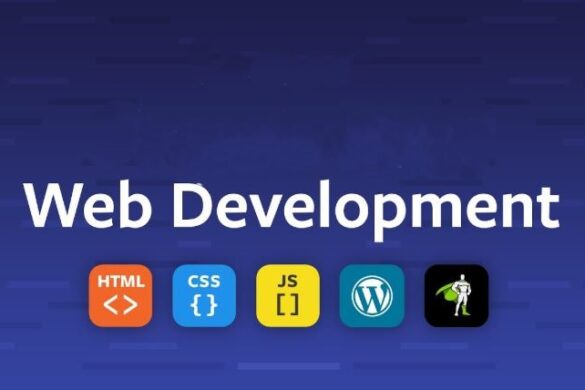In today’s digital era, a professional online presence is critical for any business, startup, or personal brand. While web development companies provide full-scale services, hiring a freelance web developer can offer flexibility, cost-effectiveness, and personalized solutions.
Freelance web developers are self-employed professionals who work independently on website design, development, and maintenance projects. They can handle anything from simple landing pages to complex web applications, offering specialized skills without the overhead of a full development agency.
This article explores everything you need to know about hiring a freelance web developer, including the benefits, types of freelancers, skills to evaluate, project management tips, pricing models, platforms to find freelancers, and common mistakes to avoid.
Why Hire a Freelance Web Developer?
Benefits of Hiring a Freelancer
Cost-Effectiveness
-
Freelancers generally charge lower rates than agencies.
-
Ideal for startups and small businesses with limited budgets.
Flexibility
-
You can hire freelancers on a project basis, hourly, or retainer model.
-
Easier to scale up or down depending on project needs.
Specialized Expertise
-
Many freelancers focus on specific technologies like React, WordPress, or Shopify.
-
You can hire experts for niche requirements.
Faster Turnaround
-
Freelancers can often deliver projects faster due to fewer internal processes.
Personalized Attention
-
Direct communication ensures your vision is accurately implemented.
Types of Freelance Web Developers
Front-End Developers
-
Focus on the visual part of websites and web applications.
-
Skills: HTML5, CSS3, JavaScript, React, Vue, Angular.
Back-End Developers
-
Handle server-side logic, database management, and APIs.
-
Skills: Node.js, PHP, Python, Ruby on Rails, SQL, MongoDB.
Full-Stack Developers
-
Combine front-end and back-end expertise.
-
Ideal for startups needing an end-to-end solution.
CMS Developers
-
Specialize in WordPress, Joomla, or Drupal.
-
Good for blogs, business websites, and e-commerce stores.
E-commerce Developers
-
Focus on platforms like Shopify, WooCommerce, Magento, or BigCommerce.
-
Handle online store setup, payment integration, and product management.

Skills to Look for When Hiring a Freelance Web Developer
Technical Skills
-
Proficiency in required programming languages and frameworks.
-
Understanding of responsive design and mobile-first development.
-
Knowledge of version control systems (Git, GitHub).
-
SEO basics and performance optimization.
Soft Skills
-
Communication and collaboration.
-
Problem-solving and troubleshooting.
-
Time management and adherence to deadlines.
Portfolio Evaluation
-
Review past projects similar to your requirements.
-
Check code quality, design aesthetics, and functionality.
-
Ask for live website demos or GitHub repositories.
Where to Find Freelance Web Developers
Online Freelance Marketplaces
-
Upwork: Large pool of global freelancers, flexible pricing.
-
Freelancer.com: Offers project bidding and talent scouting.
-
Fiverr: Quick projects with predefined packages.
Professional Networks
-
LinkedIn: Connect with professionals and check endorsements.
-
GitHub: Review developers’ open-source projects.
Local Communities
-
Tech meetups and developer events
-
University job boards or coding bootcamp communities
How to Hire the Right Freelance Web Developer
Step 1: Define Your Project Scope
-
Outline objectives, deliverables, and timelines.
-
Specify technology stack and platform requirements.
Step 2: Set a Budget
-
Decide between hourly rates, fixed-price, or milestone-based payments.
-
Research market rates for your project type.
Step 3: Screen Candidates
-
Conduct interviews or video calls.
-
Ask technical questions relevant to your project.
-
Evaluate problem-solving abilities through sample tasks.
Step 4: Review Portfolio and References
-
Verify previous work and client feedback.
-
Check the complexity and quality of projects.
Step 5: Start with a Small Project (Optional)
-
A trial project can help evaluate skills and communication.
Step 6: Sign a Contract
-
Define scope, timelines, payment terms, confidentiality, and intellectual property rights.
Pricing Models for Freelance Web Developers
Hourly Rate
-
Best for ongoing or undefined projects.
-
Rates vary depending on experience and location (typically $20–$150/hr).
Fixed-Price Projects
-
Ideal for well-defined projects.
-
Payment is made upon milestone completion or final delivery.
Retainer Model
-
Hire a freelancer for a specific number of hours per month.
-
Ensures long-term availability and support.
Managing Freelance Web Development Projects
Communication Tools
-
Slack, Microsoft Teams, Zoom for meetings and updates.
Project Management Tools
-
Trello, Asana, Jira for task management and tracking.
Version Control and Collaboration
-
Git and GitHub for code sharing and review.
Quality Assurance
-
Test websites across browsers and devices.
-
Conduct code reviews and user acceptance testing.
Regular Updates
-
Request progress reports and review deliverables periodically.
Common Mistakes When Hiring Freelance Web Developers
Lack of Clear Requirements
-
Leads to scope creep, delays, and extra costs.
Choosing Based on Price Alone
-
Cheapest options may compromise quality.
Poor Communication
-
Misunderstandings can affect project delivery and quality.
Ignoring Portfolio and References
-
Past performance is the best indicator of future results.
No Contract or Legal Agreement
-
Risk of intellectual property issues and incomplete work.
Advantages of Hiring Freelancers vs. Agencies
Freelancers
-
Cost-effective and flexible
-
Direct communication and personalized attention
-
Specialized expertise for niche tasks
Agencies
-
Team collaboration and end-to-end services
-
Project management and support structure
-
Higher cost and longer timelines
Real-World Examples of Freelance Web Developer Projects
Case Study 1: Small Business Website
-
A freelancer developed a responsive WordPress site with e-commerce capabilities for a local boutique.
-
Result: 50% increase in online sales within three months.
Case Study 2: Custom Web Application
-
Full-stack freelance developer created a SaaS platform with a React frontend and Node.js backend.
-
Result: Scalable solution for hundreds of active users with seamless performance.
Case Study 3: Portfolio and Personal Branding
-
Freelancer designed a personal portfolio with interactive UI and animations.
-
Result: Improved visibility and freelance client acquisition.
Tools and Technologies Commonly Used by Freelancers
Front-End
-
HTML5, CSS3, JavaScript
-
Frameworks: React, Vue.js, Angular
-
CSS libraries: Bootstrap, Tailwind, Materialize
Back-End
-
Node.js, PHP, Python, Ruby on Rails
-
Databases: MySQL, PostgreSQL, MongoDB
-
APIs and server integration
Collaboration and Workflow
-
Git, GitHub, GitLab
-
Figma, Adobe XD for UI/UX design
-
Slack, Zoom, Trello for communication

Conclusion
Hiring a freelance web developer can be a highly effective solution for businesses, startups, and individuals seeking flexible, cost-effective, and personalized web development services. By understanding the types of freelancers, evaluating technical and soft skills, setting clear project requirements, and using proper management tools, you can ensure a successful collaboration and deliver high-quality websites or applications.
Freelancers offer specialized expertise, direct communication, and faster turnaround times, making them an excellent choice for projects ranging from personal portfolios to complex web applications. By carefully selecting and managing a freelance web developer, you can achieve your online goals efficiently and cost-effectively while maintaining control over your project’s vision and quality.





